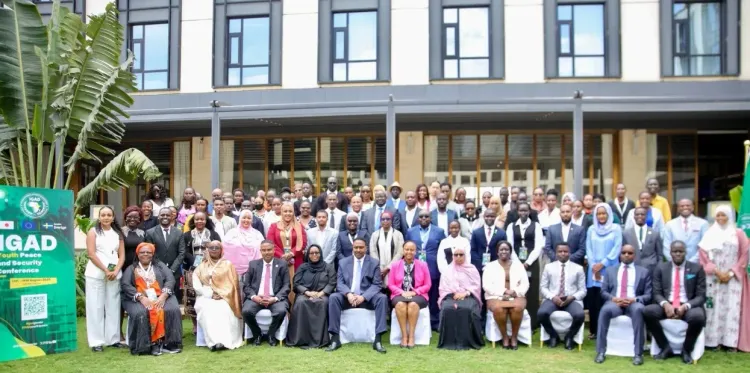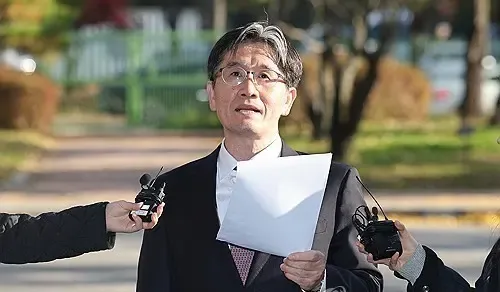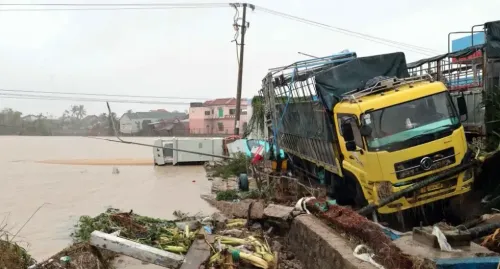How Can Experts Boost Youth Involvement in Peace and Security in IGAD?

Synopsis
Key Takeaways
- Youth represent over 60% of the IGAD population.
- Exclusion from peace processes threatens democratic progress.
- Policy reforms are essential for enhancing youth participation.
- Training youth leaders can foster conflict resolution.
- Amplifying the voices of youth can aid peacebuilding efforts.
Nairobi, Aug 14 (NationPress) A two-day conference commenced in Nairobi, the capital city of Kenya, focusing on strategies to improve youth engagement in peace and security initiatives within the Intergovernmental Authority on Development (IGAD) region.
During the IGAD Youth Peace and Security Conference on Wednesday, Workneh Gebeyehu, the executive secretary of the East African bloc, emphasized that the region boasts one of the youngest demographics globally, with individuals under 30 constituting over 60 percent of the total population.
"While the youth represent a significant force for fostering peace and security in the region, they are confronted with intricate and interconnected crises that hinder their potential," Gebeyehu remarked.
He suggested that IGAD member nations could amplify youth involvement in peace and security by enacting policy reforms and providing institutional backing to incorporate young people in fortifying community resilience, as reported by Xinhua news agency.
Abebe Muluneh, head of the IGAD Peace and Security Division, called for the adoption of national strategies and policies that align with the United Nations Security Council Resolution advocating for youth participation in sustaining international peace and security.
Muluneh pointed out that youth leaders could be trained in mediation and conflict management to act as catalysts for violence prevention.
Fatuma Adan, IGAD’s head of mission to Kenya, warned that the marginalization of youth from formal peace processes, civic discussions, and governance frameworks not only jeopardizes democratic advancement but also cultivates a breeding ground for radicalization, violence, and migration.
Adan stressed that elevating the voices of youth impacted by conflict and displacement, particularly in nations like Sudan, South Sudan, and Somalia, will significantly aid peace-building efforts in the region.









